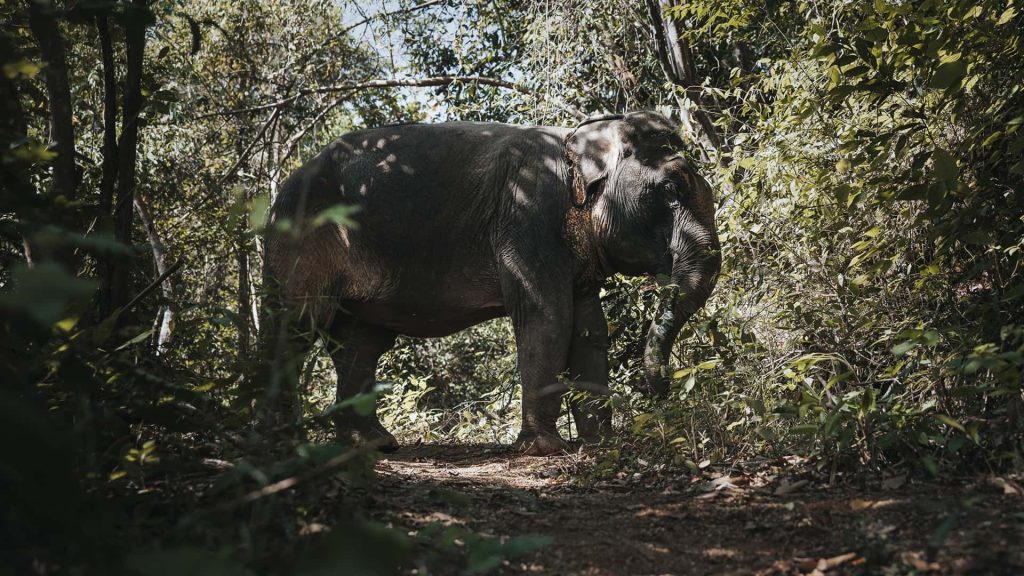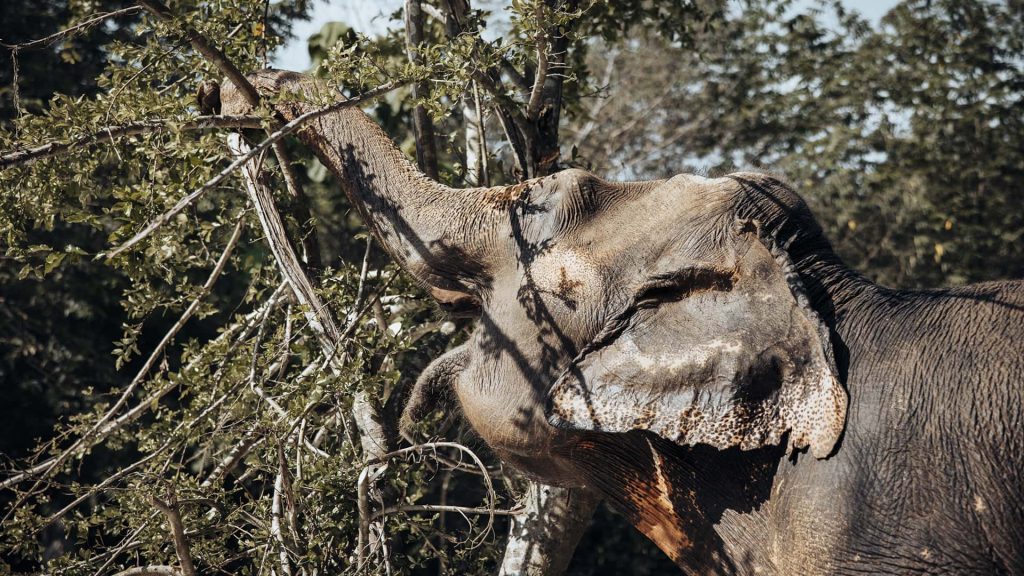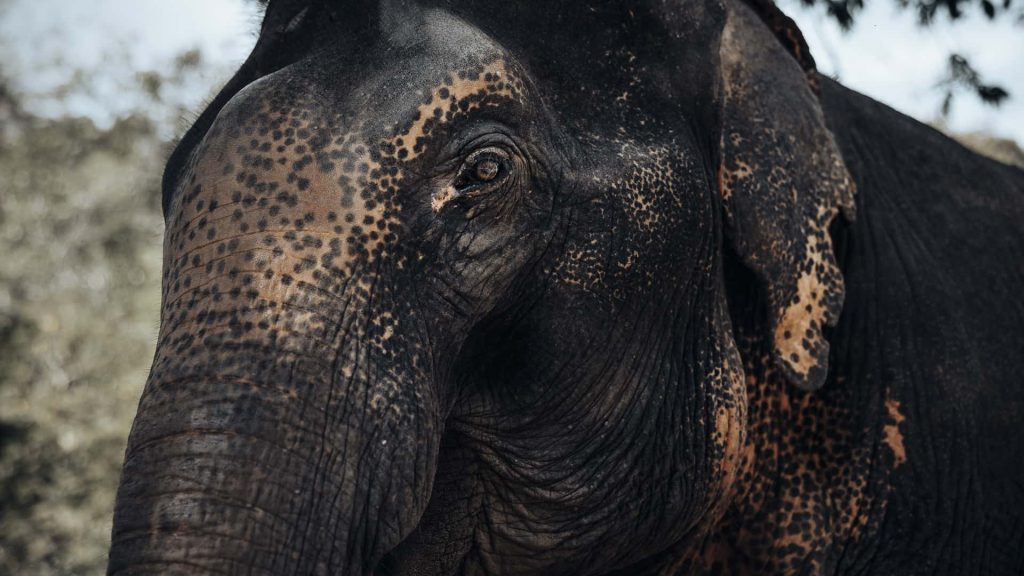In Thailand, naturally wild elephants have been cruelly domesticated for the sake of the tourism industry. While these seemingly docile elephants may give the impression to tourists that it’s safe to approach them, this is not true. Elephants are still wild and powerful animals that need to be respected.
At Phuket Elephant Nature Reserve, we offer a sanctuary to elephants who were formerly captive, providing them with as natural a life as possible. As part of our Phuket Elephant Tours and Activities, visitors have the opportunity to encounter these animals safely and ethically!
In this blog, we break down why you shouldn’t underestimate the power of an elephant. Keep reading to learn more about these incredible creatures, or feel free to get in touch with us if you have any questions about our tours.

How Strong Are Elephants?
Elephants are the largest land mammals in the world, so you definitely don’t want to be getting under their feet! Male Asian elephants weigh between 3,600 and 6,000 kilograms and can reach up to 11.5 feet tall — nearly twice the height of a 6-foot man!
Not only do elephants have heft on their side, they also have tusks. While Asian elephants typically have smaller tusks than African elephants, female Asian elephants may never develop visible tusks. These tusks play an important role in an elephant’s daily life as they are used to dig, gather food, or strip bark. They are also used in defense and in fights between males, making for a formidable weapon.
Another strength of elephants lies in their trunks. With 150,000 muscle units, these trunks are incredibly powerful. Elephants use them not only to smell, but to lift objects, break tree branches, and defend themselves. They can lift an adult human with ease!

Are Elephants Dangerous?
Elephants are typically calm and peaceful animals, but they may become aggressive when threatened or sick. Bulls are especially aggressive during musth when they experience a rise in reproductive hormones. It’s always wise to keep your distance from elephants, as you never know what they may be threatened by.
However, with an increase in habitat loss, there has also been a rise in human-elephant conflict. In many of these cases, elephants have killed people. According to the World Wildlife Fund, over 100 people in India are killed by elephants each year. Subsequently, people begin to kill elephants too.
Elephants in Captivity
In Thailand, the majority of the population of elephants are held in captivity. These elephants have typically been beaten and abused in order to entertain tourists with activities like baths, rides, and tricks. You can learn more about the state of this on our blog about Ethical Elephant Tourism in Thailand.
Captive elephants are more dangerous to humans than wild elephants. According to World Animal Protection, on average one person in Thailand is killed for every male elephant in captivity. Often, an elephant’s sheer size and strength are enough to kill someone.
Despite this, it’s often wrongly believed that elephant tourism in Thailand is safe. However, the only reason captive elephants may appear calm to tourists is because they are being controlled by cruel bullhooks and have been abused into subjugation.
When it comes to elephants, as much respect must be offered to them by keeping your distance and never attempting to touch them.
What is the Intelligence of Elephants?
Power does not only lie in physical strength. Elephants are among the most intelligent animals, known for their incredible memories, communication skills, and empathy. With brains weighing up to five kilograms, it’s not difficult to see why!
They have been observed to possess problem-solving skills and even the capacity to use tools. With the ability to remember other elephants, routes, and locations, their memories serve them throughout their lifetime. As the saying goes, an elephant never forgets!
Most notably, elephants are highly emotionally intelligent. They form deep social bonds with other elephants who they communicate with through vocalizations, touch, and even vibrations in the ground. Deeply empathetic, elephants are also known to grieve the loss of another elephant and even perform burials by placing leaves over their bodies.

Seeing Elephants Safely and Ethically with PENR
Captivity is no place for an animal as intelligent and powerful as an elephant. These giants are meant to roam freely with their herds, where they can live a peaceful existence feeding off grass and trees. That’s why at Phuket Elephant Nature Reserve, we have created a sanctuary where our elephants are free to be elephants.
With over 30 rai of forest to walk in, spacious shelters, natural foods, and the ability to socialize with one another, our sanctuary is a true place of refuge for formerly captive elephants. To change the tide against unethical elephant tourism, we allow visitors to observe our elephants from a distance through our Phuket Elephant Tours and Activities. There is no touching, hand-feeding, riding, or bathing allowed, nor are there any bullhooks involved.
Witnessing elephants behaving naturally allows you to see their strength and intelligence in action — and it’s certainly worth your admiration. Should you have any questions about our sanctuary or our tours, please get in touch.






